
OR
#OPINION
India's Secular, Democratic Fabric Faces Threat
Published On: March 29, 2024 08:30 AM NPT By: Loknath Sangroula
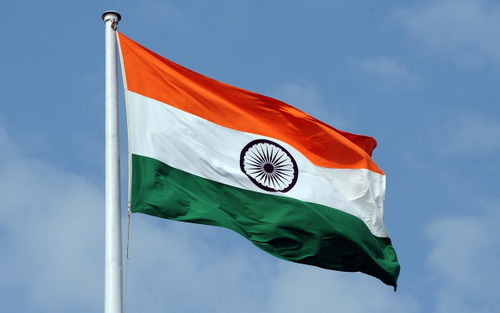
The stage is set for the 2024 Lok Sabha elections in India, with 543 seats up for grabs. Scheduled to begin on April 19 and conclude on June 1, the elections will unfold over seven phases, with results slated to be out on June 4. Prime Minister Modi has already kicked off his campaign, aiming for a repeat of his landslide victories in 2014 and 2019. He is sparing no effort, relentlessly appealing to India's majority faith. On the other side, opposition parties have stitched together, forming an alliance of more than two dozen regional parties under the banner of INDIA. Their aim is to present a united front against the BJP's well-oiled and well-funded electoral juggernaut, and this has presented a monumental challenge to their efforts.
The current political landscape in India is marked by a series of concerning trends aimed at stifling opposition voices and consolidating power. This includes eradicating dissenting voices from the media, engaging in MLAs'suspected horse-trading, and exerting control over elected governments through the enactment of new laws. Furthermore, there are reports of the weaponization of investigative agencies such as the Enforcement Directorate (ED), Income Tax Department, and CBI to target opposition politicians, leading to their incarceration. The interference in the functioning of state governments, along with the withholding of funds from non-aligned states, further undermines democratic norms. The filing of FIRs and the arrest of individuals merely for posting anti-PM Narendra Modi posters in Delhi highlight a troubling trend of suppressing dissent. Additionally, the curtailment of the right to protest, coupled with instances of using excessive force like tear gas and live ammunition, further restricts freedom of expression and assembly. These actions collectively pose a threat to the democratic fabric of the nation.
In the lead-up to assuming power in 2014, Modi flayed the Election Commission for alleged partiality and bias. However, in the past decade, numerous accusations have been leveled against Modi, with Prashant Kishore, a senior advocate at the Supreme Court, going so far as to call the EC an extension of BJP. Despite the EC's clear, categorical directive that votes cannot be asked for in the name of the army, before the 2019 elections, Modi shamelessly asked for votes in the name of martyrs and airstrikes. He invoked the Pulwama martyrs to garner support (ToI, April 10, 2019). Uttar Pradesh Chief Minister Adityanath Yogi referred to the Indian Army as "Modi Ji ke sena" (Modi's Army) (April 1, 2019, The Indian Express). When a complaint was filed against it with the Commission, no action was taken for 21 days, and ultimately, clean chits were given to them.
The Commission has now become a mere shadow of what it used to be during the days of TN Seshan (1990-1996), who famously said, "I eat politicians for breakfast." Known for his unsparing nature, the ruthless efficacy with which he implemented the Model Code of Conduct during polls stands unparalleled. The rampant muscle power and electoral banditry were significantly curbed due to his no-nonsense doggedness for probity. He once suspended polls in Madhya Pradesh and demanded the governor's resignation for campaigning for his son. Politicians were kept on their toes and feared bending rules. In contrast, when Amit Shah compared Rahul Gandhi's constituency in Kerala to Pakistan in the 2019 elections, he faced no consequences. The Modi and Shah duo reportedly received seven clean chits. One of the three-member Election Commission, Ashok Lavasa, objected to this, and consequently, he was pressured to resign. His family members, including his wife, were harassed. These events reflect the vengeful streak within the BJP.
Previously, a high-level selection committee composed of the prime minister, Chief Justice of India and the opposition leader would recommend the appointment of the three-member Election Commission, but the government recently enacted a new law, replacing the CJI with a Union minister in the committee. Although this amendment was challenged in the Supreme Court, the court refused a stay, arguing that regulating the Election Commission falls under the government's purview. Similarly, India's main opposition party, the Congress, has had its 11 bank accounts frozen on the "flimsy" ground of delay in filing returns from years ago, and all this when the elections are around the corner. This has crippled all its activities. The candidates are about to start filing their nominations, but the party's bank accounts are frozen. Now the party finds itself unable to access funds, lacking even the means to purchase train tickets.
With its chief Arvind Kejriwal behind bars, the Aam Aadmi Party (AAP) office is all locked up tight, with security guards posted everywhere, blocking its leaders and workers from even stepping inside. And they're pulling this stunt right when elections are just around the corner. What else could it be but a blatant attempt to choke democracy by wiping out all opposition parties? The Election Commission has been twiddling its thumbs, failing to provide a level-playing field to every political party contesting the elections. If this situation does not reflect a decay eating into the vitals of the world's largest democracy, what does? In 2023, fourteen political parties filed a complaint with the Supreme Court against the government's alleged misuse of the ED, CBI, and the Income Tax Department. They claimed that these agencies had carried out over 3,000 raids on opposition parties. This marks a fourfold increase in the number of ED cases against politicians compared to 2014, with a staggering 95% of the cases being registered against opposition parties.
The 2019 Citizenship Amendment Act marked a historic shift in India by introducing religion as a criterion for refugees from neighboring countries of Afghanistan, Bangladesh and Pakistan to obtain citizenships, explicitly excluding Muslims. This exclusion contradicts the principle of "equality" as provided for in Article 14 of the Indian Constitution. The targeting of Muslims, who make up nearly 14% of the population, by the ruling party appears to be part of a broader pattern or malaise. Furthermore, the CAA cannot be decoupled from the National Register of Citizens (NRC) which many believe is a ploy to grant citizenship to Hindus while excluding Muslims. In this scenario, these Muslims risk becoming stateless, losing their right to vote, finding themselves in detention centers, or even facing deportation as illegal migrants. Religious neutrality of the state has got diluted. Renowned intellectual Prof. Ashutosh Varshney goes as far as to label the BJP as an anti-system party, implying its opposition to constitutional morality. The party appears to have resorted to violence making it the cornerstone of its policy in pursuit of its agenda. Mr. Varshney further warns that if the BJP wins the 2024 elections, there is a real risk of Muslims being marginalized to the state of the next Dalits in Hindutwa India.
The disclosure of massive donations in the form of electoral bonds – a key method of political funding – heavily favoring BJP, has rattled India like never before and called into question the relevance of transparency, fairness, and honesty in politics.The State Bank of India (SBI), in an affidavit, reported to the Supreme Court that between April 1, 2019, and February 15, 2024, donors purchased 22,217 electoral bonds, of which political parties redeemed 22,030 bonds worth IRs.12,769.40 crore. Data show that the BJP was by a large margin the single biggest recipient from April 2019 to January 2024, receiving nearly 48% of all electoral bonds redeemed by parties up to March 2023, amounting to around IRs.6,060 crore. The TMC followed at 12.6% and the Congress at 11% (frontline.thehindu.com). Worrisomely, theBJP twisted the arms of companies like Future Gaming and Hotel Services Ltd., Megha Engg and Infrastructure Ltd., Aurobindo Pharma, etc., to cough up massive donations to the ruling party as quid pro quo.
Sonam Wangchuk, a Magsaysay Award-winning educator and innovator,bravely concluded his 21-day climate fast in sub-zero temperature on March 27, demanding statehood for the Union Territory of Ladakh and its immediate inclusion in the Sixth Schedule of the Constitution (recommended by the National Commission for Scheduled Tribes to the Union Home Minister and the Union Minister for Tribal Affairs) to safeguard its fragile economy and glaciers from industrialists' prying, greedy eyes. Despite his impassioned pleas, the BJP callously ignored Wangchuk's appeals, displaying a disturbing blend of authoritarianism and arrogance. This highlights the BJP's complicity with those willing to exploit every inch and corner of the earth for profit. However, Wangchuk has vowed to continue with his demands in the days ahead more vigorously. The looming shadow of the political-corporate mafia poses a grave threat to Ladakh. echoing the devastation it wrought in the forests of Hasdeo in Chhattisgarh. Now, its sights are set on the pristine lands of Buxwaha, Madhya Pradesh. This is the same force that triggered the disaster in Joshimath and the tunnel collapse in Uttarakhand, leaving a trail of destruction. Alarmingly, Lakshadweep appears poised to suffer a similar fate at its hands.
After a decade under PM Modi's watch, India's democratic culture, institutions, and ethos have suffered significant erosion, with civil liberties and press freedom under severe attack. The media have become so subservient to the corridors of power that they have gone from being watchdogs to lap dogs. According to the "Democracy Report 2024" released by the Sweden-based Varieties of Democracy (V-Dem) Institute, which tracks democratic freedoms worldwide, India, downgraded to an "electoral autocracy" in 2018, has further declined on multiple metrics to be classified as "one of the worst autocratizers." If the BJP were to sweep the 2024 elections, as unlikely as that may seem, the Congress's warning of 'One Nation, No Elections' could become a reality!
You May Like This
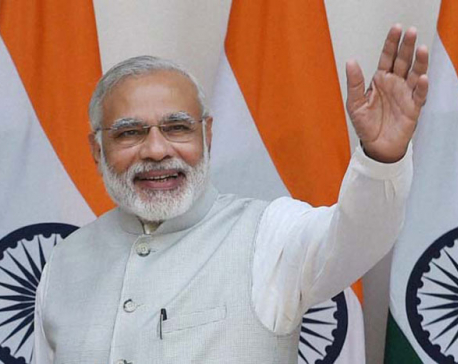
Nepal good friend of India: Deuba, India ready to support Nepal's development: Modi
NEW DELHI, Aug 24: Prime Minister Sher Bahadur Deuba, who is currently on a five-day state visit of India, said... Read More...
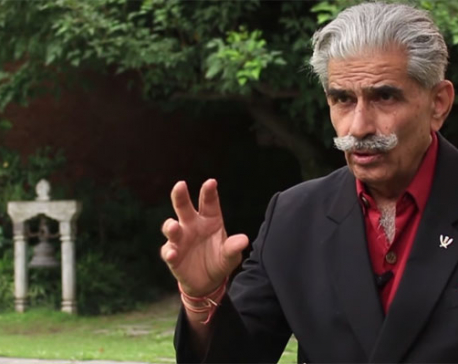
China outrunning India in Nepali politics, India mulling a new strategy
With an unprecedented activeness of China, India seems preparing to counter it. India's Nepal Affairs expert and retired Indian Army... Read More...
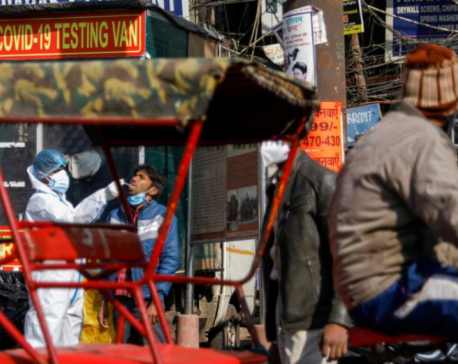
India records lowest daily coronavirus tally since July 3
MUMBAI, Dec 22: India has recorded 19,556 new cases of the coronavirus, according to health ministry data on Tuesday, its... Read More...










Just In
- Heavy rainfall likely in Bagmati and Sudurpaschim provinces
- Bangladesh protest leaders taken from hospital by police
- Challenges Confronting the New Coalition
- NRB introduces cautiously flexible measures to address ongoing slowdown in various economic sectors
- Forced Covid-19 cremations: is it too late for redemption?
- NRB to provide collateral-free loans to foreign employment seekers
- NEB to publish Grade 12 results next week
- Body handover begins; Relatives remain dissatisfied with insurance, compensation amount



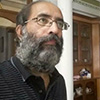




Leave A Comment